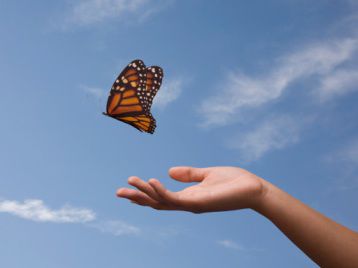 As a mother of young children, when I would mention to my mother or mother-in-law an issue I was having with one of my children, they often quoted the expression, “little children, little problems, big children, big problems.” This was often followed by a mention of the latest difficulties they were having with one of their children who was a member of my generation–they were not moving in a timely manner towards a lucrative career, they were divorcing, and “there’d never been a divorce in our family,” or they are considering marrying the absolute wrong person or moving away across the entire continent. My response as I listened to their pain was often, “You ladies aren’t giving me much to look forward to.”
As a mother of young children, when I would mention to my mother or mother-in-law an issue I was having with one of my children, they often quoted the expression, “little children, little problems, big children, big problems.” This was often followed by a mention of the latest difficulties they were having with one of their children who was a member of my generation–they were not moving in a timely manner towards a lucrative career, they were divorcing, and “there’d never been a divorce in our family,” or they are considering marrying the absolute wrong person or moving away across the entire continent. My response as I listened to their pain was often, “You ladies aren’t giving me much to look forward to.”One of my friends has taken to referring to her grown children as, “my offspring” to help her recognize that they are no longer children. The poet Kahlil Gibran has the Prophet tell us that they never were. “Your children are not your children. They are sons and daughters of life’s longing for itself, they come through you but not from you, and though they are with you yet, they belong not to you.” Gibran suggests parents think of themselves as “the bows from which your children as living arrows are sent.” This suggests we aim our offspring in a specific direction but after that we must release them to soar on their own.
Being disappointed in one’s children at some point in their lives is quite common, as is worrying about how things will work out for them. But this worry may be a kind of self-preservation as another saying that many mothers in the U.S. have heard is “You can only be as happy as your happiest child.” A friend from Brazil told me of a version of this saying I like better. According to her, Brazilian women are taught, “You must be happier than your happiest child since you are their role model, and they are following you.’
Now as I have much contact with grown children caring for their elder parents, I recognize that disappointment and worry goes in both directions. Parents don’t always age the way we had imagined they would, or, most likely, the way they imagined they would. “Mother has become so difficult.” “Dad won’t accept help when he clearly needs it.”
In this life-long art of grieving journey few of us have mastered Gibran’s open-handed release of our offspring or of our elders to fly where their own destiny takes them. We want so much for them, and from them. It is a part of our life’s work that we learn to love our offspring and our elders, however they have turned out, and whoever they have become.

